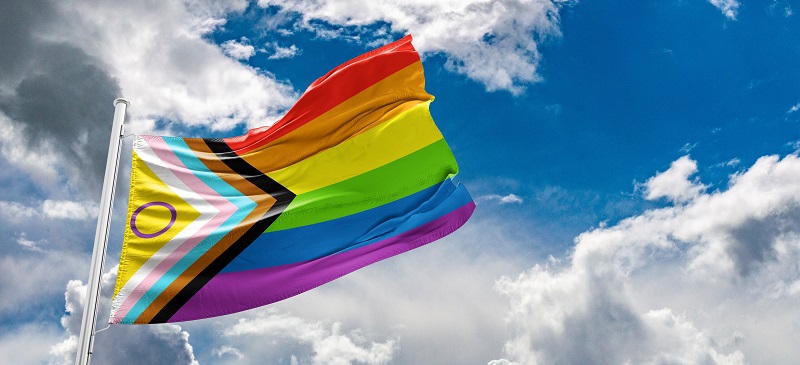On this page

Many people are questioning the role of corporate sponsorship in political movements and community events. Pride season is a significant source of work and income for gigging performers working across the country, but Equity members should feel empowered to request transparency from bookers and organisers and should feel able to make an informed decision about the bookings they take and the organisations they represent.
This guide has been produced by working members of the Equity Drag Network and LGBT+ Committee.
Contracts, terms and conditions and working for free
Not all bookers will use formal contracts. Very often a booking will be made by email, text, WhatsApp, or a direct message on social media. This correspondence can often still constitute a legal contract. There are benefits to using a full detailed contract, particularly for larger scale events and bookings.
Guide to making your own contractWhat is a contract?
A contract is essentially an agreement between two parties that one will do something for the other in return for 'consideration' (usually a fee). There must be sufficient detail agreed for the contract to be binding, the fundamental points generally being time, date, place, fee and what is being provided, and there must be clear offer and acceptance and an intention on the part of both parties to enter into a binding agreement.
How does this need to be recorded?
There is no need for a contract to be recorded in a particular way and it can be purely verbal. In practice there is likely to be evidence that a contract exists via a series of electronic communications even if all of the necessary information isn't written into one document. Should anything go wrong a verbal booking may be difficult to prove so it is worth the artist writing everything down and sending a copy to the other party unless a formal contract is being issued by the booker.
Essential details to get from the booker
- Full Name: That is first name and surname (not just Dave or Mrs Smith) and particularly important if the individual is booking on their own behalf rather than an organisation.
- Company Name: This applies if the person is booking on behalf of a business which could be: a limited company (Ltd); a Community Interest Company (CIC); a charity or some other kind of business.
- Job Title: This applies if they are booking on behalf of a business or organisation.
- Address: This means the postal address of the individual or the business. If someone is unwilling to provide this then it may be a cause for concern. An email address may be adequate for communications about the details of the event, but it is not enough to follow up formally if anything goes wrong. Also don't assume because you can see lots of details about the person or organisation on Facebook, for example, that you really know the essential details about who they are.
- Venue Address: As you will need to know where to go to perform. For Pride events this could be a temporary outdoor space or pop-up venue.
- Fee: This is obvious but you should also agree when and how you will be paid and if there is any deposit payable in advance.
- Time: Start and finish are the essentials but arrival, set-up, sound check may all be important to clarify for some bookings.
There will be other details that you will need such as mobile phone numbers, on site contact details and email addresses, parking arrangements, the fine details what you're being booked to do, audience size and type but these are not fundamental to the contract itself.

Things to consider when signing a contract
What is the cancellation policy?
Bookings for large scale events will often include a cancellation policy in your contract, and it is important that you read and understand exactly what you are agreeing to.
The majority of small or mid-scale bookings will probably not include this level of detail. In these scenarios, cancellation clauses are a matter for the individual entertainer to decide whether they want to negotiate into their contracts. If you do not mention cancellation in your confirmation, then the default position under Contract Law is that neither party can withdraw from the contract without the other's agreement.
You can also state this position in the contract if you prefer by stating "Cancellation can be by mutual agreement only". The standard Equity contracts for entertainers contain this clause.
If you want to use cancellation clauses, as some entertainers prefer to do, then you need to agree them with the other party. Stating them on a confirmation may suffice for this purpose as you are usually strengthening the booker's rights (and weakening your own).
Some entertainers may use a sliding scale e.g., 'Cancellation within 14 days, 50% of fee payable. Cancellation within 7 days, full fee'. It is uncommon for entertainers to include provisions for cancellation at such short notice, as Pride season work is often booked a long way ahead and is difficult to replace if lost. Equity would not normally recommend including cancellation terms in contracts as your rights are stronger without them.
Working for free
Obviously, there are many legitimate community and charitable events which rely entirely on the efforts of volunteers. However, if you are being contacted and booked directly as a professional performer, you should assume that there is a budget and therefore appropriate remuneration.
Too often performers and creatives are expected to give their time and energy for free, exchanging hard work for 'exposure'. Depending on the circumstances of the engagement, this can be illegal.
This particularly affects members at the start of their careers, and those without savings or economic support also find themselves priced out of the industry.
Performers and creatives deserve to be treated with the respect workers in other industries take as a given. You deserve decent pay and conditions of work.
Guide to low pay and no payPinkwashing, ethics and transparency
Pride events are inherently political, but different organisations may consider this to a greater or lesser degree. Some may focus on collective joy and celebration, whereas others may highlight the historical and contemporary liberation struggle for LGBT+ people.
As a worker, you may want to consider how your own politics and ethics align with the work you’ve been offered.

Pinkwashing
Pride began at the Stonewall inn, led by trans women of colour, as a protest and a call for queer liberation. Many Pride organisations pay homage to this legacy by embedding activism in the events they put on. Others may be profit-making and/or be funded by corporate sponsors which actively undermine this cause.
‘Pinkwashing’ is a term to describe instances where a company/organisation/government publicly supports LGBT+ rights as a performance of their liberal credentials and profit from this. This is often short lived (for example, only through the month of June), superficial and used to mask or distract from other oppressive practices which they engage in.
For example: not hiring Queer people outside of Pride month; not distributing any Pride profits to LGBT+ causes; not paying a living wage to workers or making unethical investments which actively harm marginalised people.
You can learn how to spot instances of Pinkwashing to make more informed decisions when taking on work.
Pride event ethics
To understand this further, you can check the public policies of the Pride event, as well as investigating the organisation’s ethos and other organisational ties. This may also include looking for which companies sponsor or support said event.
There are a number of ways to find this information, here are some (non-exhaustive) suggestions:
- www.ethicalconsumer.org offers detailed information about the ethics of particular companies, including those which impact the climate crisis, workers’ rights, the Palestinian genocide and others.
- www.palestinecampaign.org has a number of resources on their website including an introduction to BDS (Boycott, Divest, Sanction) and information on some key companies they recommend avoiding.
- Ask your community! You can reach out to your network or trusted comrades to ask questions about a company's reputation, as well as other workers’ employment experience with them.

Transparency
Some organisations may not fully list their sponsors or benefactors at the time of contracting you. If this is the case, consider asking for transparency on this. Asking for this in advance can allow you as an artist to make better informed decisions; plan your work and finances further in advance; as well as encourage and normalise transparency in the industry.
If you have any questions about how this might affect your contract or any other considerations, get in touch with Equity!
Examples and scenarios

“I would like to take a gig and I am happy with the current sponsors. What if they add a new sponsor at the last minute who I don’t want to be affiliated with?”
It is always best to ask questions at the point of engagement. You can call and speak to someone at Equity for advice on this or anything contract related. This will help you feel better equipped to have the conversation with the booker.
Ask the booker if they have a sponsorship ethics policy, so you can get a better understanding of how sponsors are chosen and vetted. Each organisation will be different. Equity would encourage any major Pride event or organisation to have detailed clauses on Transparency and Disclosure in any sponsorship ethics policy, so that performers can make an informed decision about who they are associating with by accepting the gig.
“My Pride gig has been cancelled 2 weeks before the date. Pride season gigs are booked up way in advance, and I will struggle to find alternative work now. I have turned down other gigs to hold this date.”
Always read through your contract at the point of engagement, check if there is a cancellation policy. You can read more about this in part 1 of this guide. If the gig has been booked without a formal contract or a cancellation policy, then cancellation must be by mutual agreement. In this scenario, if the booker has cancelled the gig with 2 weeks’ notice without mutual agreement, you might still be entitled to be paid as this would result in a loss of earnings for you. Equity provides legal support and representation in these instances as part of your membership. You should contact Equity to discuss the case is detail.
“I have been booked for an event, and I have specific access needs. How should I approach this with the booker?”
The Equality Act requires employers and organisers to make reasonable adjustments so that disabled people can access jobs and services.
What's reasonable depends on a number of factors, including the resources available to the organisation making the adjustment.
If you have a concern around a failure to make a reasonable adjustment to either gain work or stay in work you should seek advice from Equity as soon as possible.
For some people, sending an access document as early as possible allows them to work out whether their working relationship will be conducive. Using an access rider can often help both artists and organisations to feel comfortable working together.
Unlimited have an Access Rider Guide which is widely recognised in the cultural sector.
Find out more about your protections under the Equality Act.
